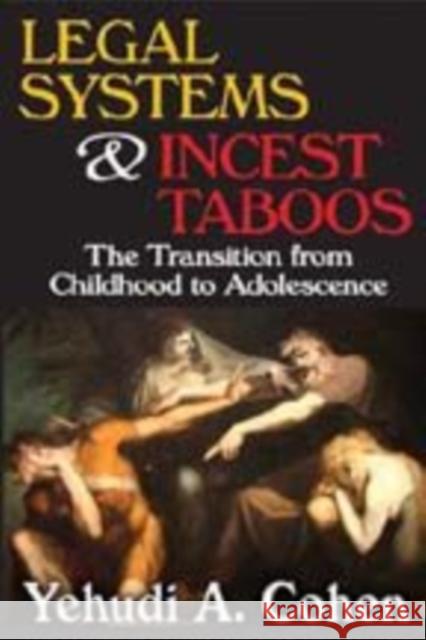Legal Systems & Incest Taboos: The Transition from Childhood to Adolescence » książka
Legal Systems & Incest Taboos: The Transition from Childhood to Adolescence
ISBN-13: 9780202363677 / Angielski / Miękka / 2010 / 254 str.
The goal of this book is to investigate why there are two distinct notions of liability in the legal and ethical systems of different societies; the relationship between two sets of criteria of liability and the individual's evolution from childhood adolescence. The specific ways in which different societies cope with the transition from childhood to adolescence are important because a sense of responsibility, consonant with the goals of the society and survival of family and culture, is implanted in the growing child.The ways in which incest taboos are taught constitute one of the crucial modes by which a sense of responsibility is implanted within an individual during his transition from childhood to adolescence. The author places most of his focus on social systems, the transition from childhood to adolescence. Theoretical concerns are with the ways in which human biology and human social structures impact each other.The fact that wide variations do exist among societies in connection with certain types of incest taboos does not lead inevitably to the conclusion that there is no biological basis for the incest taboo. The immediate impression of variability can be misleading; extreme differences between cultures in the same institutional realm, as between individuals, often reveals remarkable regularity and consistency. These regularities are seen in the cultural phenomena; the assumption that biology and culture are bound up in their manifestations is fundamental in understanding their nature











